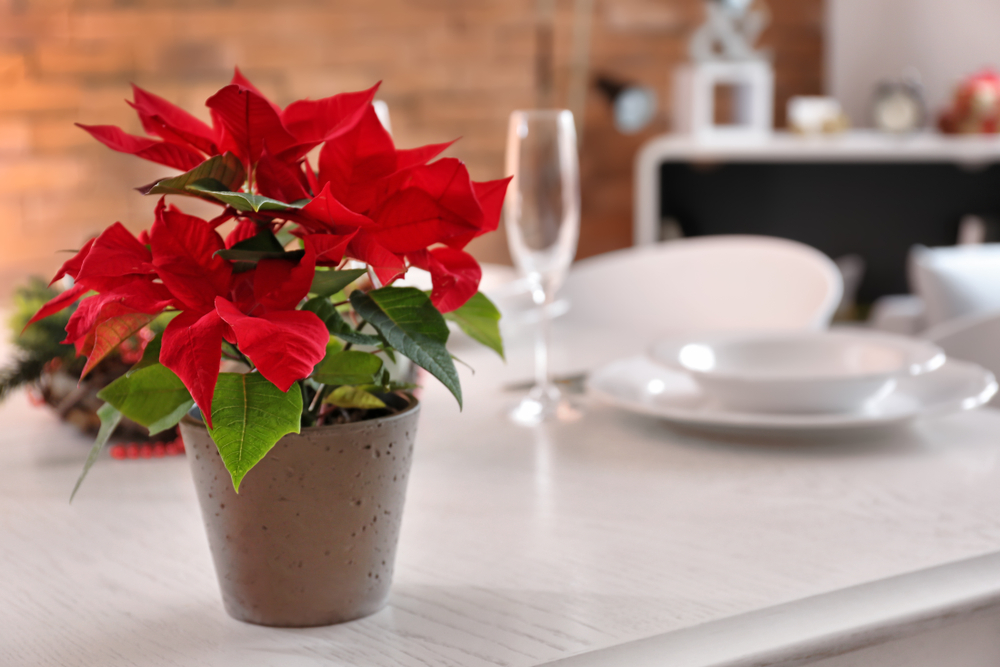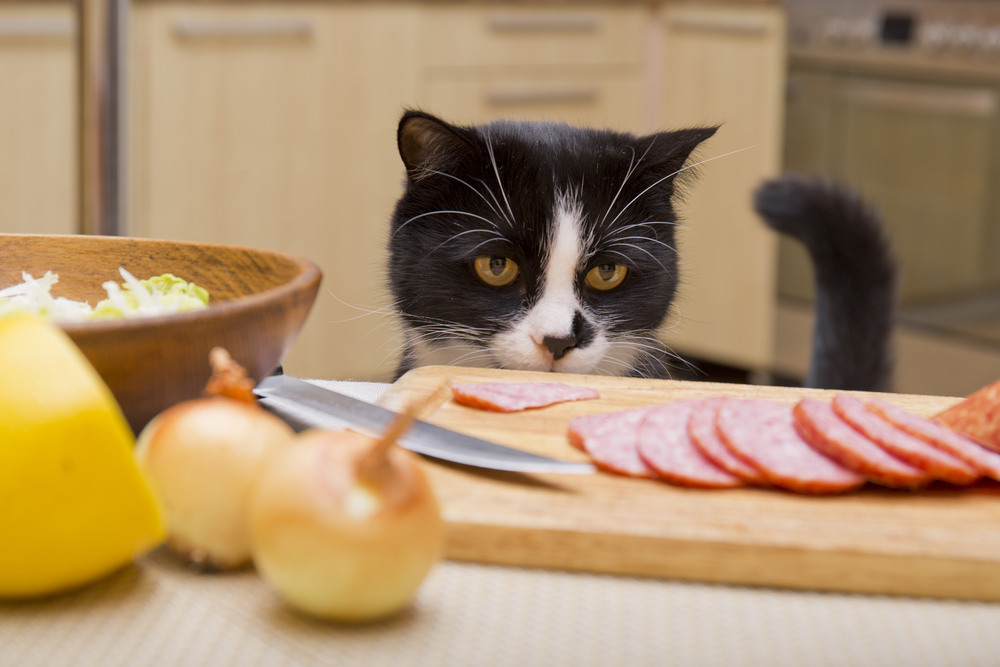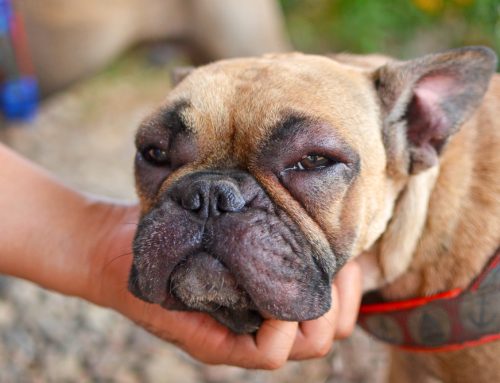Thanksgiving is about gratitude—for our friends, family, and pets. Before this busy holiday arrives, you will be thankful you considered your pet’s safety before the festivities are in full swing, and you will be grateful to have the necessary pet-protection items. Read our All Creatures Animal Hospital team’s list of four pet-safety items to be grateful for this Thanksgiving.
#1: Pet gates
If you have tried to block your pet’s access to a hallway—using chairs, pillows, and other household items—you know how resourceful and, frankly, talented a pet can be when they feel left out of the fun. So, this Thanksgiving, let’s appreciate the pet gate, which is absolutely clutch during holiday celebrations, helping keep your pet safe, and your concerns at bay. Consider placing pet gates in the following areas:
- Front door — With guests coming and going, the front door hubbub provides the perfect opportunity for your pet to slip outdoors. Use a pet gate to block your pet’s access to the front door, and prevent a heartbreaking lost-pet situation.
- Kitchen — Where there’s food, there’s usually an eager pet waiting for a tasty morsel to drop to the floor. Thanksgiving meal preparation is stressful enough without your furry pal underfoot, waiting to gobble down a food that may be hazardous to their health. Use a pet gate to block your pet’s access to the kitchen, and protect them from food-related dangers, including:
- Yeast dough — Rising dough’s aroma can tempt your pet, but if they eat unbaked treats, the yeast can ferment and rise in their digestive tract, distending their stomach or creating an intestinal blockage. The ethanol in yeast can cause your pet to experience a dangerous drop in blood sugar, blood pressure, and body temperature, and—in extreme cases—can lead to seizures and respiratory failure.
- Food wrappers and foil — Wrappers that have covered foods and their drippings entice pets. If your pet swallows plastic wrap or foil, their digestive tract can become inflamed and obstructed.
In addition to using pet gates to block your pet’s access to certain home areas, you should consider blocking their access to some guests. Many pets become anxious among unfamiliar people, and young children can particularly cause stress. Set up a pet gate in an area from which your pet can observe the guests if they would like. Once your pet appears calm and ready to socialize, gradually begin introducing them to unfamiliar people. Remind children to approach your pet gently, speaking to them with their indoor voices. Although your pet may enjoy people, always supervise their interactions with kids.
#2: Secure trash cans from curious pets
A trash can filled with Thanksgiving leftovers is the holy grail for a curious pet, so ensure trash cans remain securely closed throughout your festivities. You will give thanks for having an impenetrable trash can that deters dumpster-diving pets from devouring turkey bones and skin, overly seasoned side dishes, and other foods that could send them to an emergency veterinary hospital.
#3: Tall kitchen counters and other places out of your pet’s reach
With the copious amounts of delicious Thanksgiving foods, you can be hard-pressed to find a place to put it all—especially out of your pet’s reach. Some pets’ kitchen counter-surfing abilities are top-notch, and you are likely grateful for tall counters, shelves, and sideboards. Always supervise your pet to prevent them from trying to sneak a tasty morsel from a counter full of potentially pet-toxic foods such as:
- Turkey — While a small amount of skinless white turkey meat is safe for your pet, the high-fat skin and dark meat can trigger pancreatitis, and the bones can easily splinter, injuring your pet’s mouth or throat.
- Sugar-free desserts — Xylitol is a common sugar substitute in many sugar-free baked goods, candies, and gums. While xylitol is great for your waistline, this ingredient can cause your pet to experience hypoglycemia and liver failure.
- Grapes, raisins, and currants — Whether fresh or as a side dish ingredient, these fruits can cause your pet to experience kidney failure and potentially death—even if they consume only a small amount.
- Onions, garlic, chives, and leeks — These vegetables are included in many popular Thanksgiving dishes. However, alliums contain thiosulphates, which can destroy your pet’s red blood cells, causing anemia.
- Nuts — All nuts are high in fat, and can cause your pet to develop pancreatitis. Macadamia nuts are especially dangerous, causing your pet to experience muscle weakness, depression, and vomiting.
#4: Pet-safe plants

While fall foliage makes a beautiful Thanksgiving table centerpiece, ensure you choose a floral display that is nontoxic to your pet. You will be grateful you checked out the ASPCA’s Poisonous Plant Guide, and searched the organization’s list of toxic and nontoxic plants. Several popular decorative plants, including lilies, chrysanthemums, and autumn crocuses, are toxic to pets. A temporary floral decoration that includes toxic plants is not worth the serious harm it can cause your curious pet if they nibble the display.
This Thanksgiving, we are grateful for you and your amazing pets—who enrich our lives every day. If you have questions or would like additional guidance to ensure your pet stays safe and comfortable this Thanksgiving, contact our All Creatures Animal Hospital team.














Leave A Comment